Religious Wars participants
Anna Akasoy is Associate Professor of Islamic Intellectual History at Hunter College, New York. Apart from many articles, her monograph Philosophie und Mystik in der späten Almohadenzeit. Die Sizilianischen Fragen des Ibn Sab‘in (2006) is her most important work.
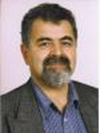 Saïd Amir Arjomand has been at Stony Brook since 1978, and is currently the Editor of the Journal of Persianate Studies. Arjomand is the author of The Shadow of God and the Hidden Imam: Religion, Political Organization and Societal Change in Shi’ite Iran from the Beginning to l890, The Turban for the Crown. The Islamic revolution in Iran, and After Khomeini, Iran under his Successors. He had recently edited two books on comparative constitutionalism: Constitutionalism and Political Reconstruction, (2007), and Constitutional Politics in the Middle East, (2008). Professor Arjomand was the Crane Inaugural Fellow in Law and Public Policy at the Woodrow Wilson School, Princeton University, and a Carnegie Scholar (2006 – 2008). Arjomand is concurrently Director of the Stony Brook Institute for Global Studies, guiding its project on the integration of social theory and regional studies. The studies so far edited by him and published in the Institute Pangaea II: Global/Local Studies SUNY Press Series are The Rule of Law, Islam, and Constitutional Politics in Egypt and Iran (edited with Nathan J. Brown; 2013), Social Theory and Regional Studies in the Global Age (2014), and The Arab Revolution of 2011:A Comparative Perspective (forthcoming). He also helped organized the Thematic Plenaries at the World Congress of Sociology in Gothenburg, Sweden, in July 2010, and is the co-editor (with Elisa Reis) of a volume of their selected papers, Worlds of Difference (2013).
Saïd Amir Arjomand has been at Stony Brook since 1978, and is currently the Editor of the Journal of Persianate Studies. Arjomand is the author of The Shadow of God and the Hidden Imam: Religion, Political Organization and Societal Change in Shi’ite Iran from the Beginning to l890, The Turban for the Crown. The Islamic revolution in Iran, and After Khomeini, Iran under his Successors. He had recently edited two books on comparative constitutionalism: Constitutionalism and Political Reconstruction, (2007), and Constitutional Politics in the Middle East, (2008). Professor Arjomand was the Crane Inaugural Fellow in Law and Public Policy at the Woodrow Wilson School, Princeton University, and a Carnegie Scholar (2006 – 2008). Arjomand is concurrently Director of the Stony Brook Institute for Global Studies, guiding its project on the integration of social theory and regional studies. The studies so far edited by him and published in the Institute Pangaea II: Global/Local Studies SUNY Press Series are The Rule of Law, Islam, and Constitutional Politics in Egypt and Iran (edited with Nathan J. Brown; 2013), Social Theory and Regional Studies in the Global Age (2014), and The Arab Revolution of 2011:A Comparative Perspective (forthcoming). He also helped organized the Thematic Plenaries at the World Congress of Sociology in Gothenburg, Sweden, in July 2010, and is the co-editor (with Elisa Reis) of a volume of their selected papers, Worlds of Difference (2013).
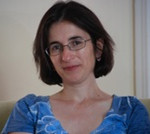 Leila Austin SAIS Professorial Lecturer in Global Theory and History and Middle East Studies, currently serves as deputy director of Cultural Conversations at the Foreign Policy Institute at SAIS. She also teaches in the Global Security Studies department of Johns Hopkins University’s Zanvyl Krieger School of Arts and Sciences, and the American University’s School of International Service. She has previously taught at Columbia University’s School of International and Public Affairs (SIPA) and Bryn Mawr College. Dr. Austin is consultant to Freedom House and Voice of America. Her research interests include the role of religion, literature and political culture more generally in defining politics and policy-making, history and politics of the Middle East and North Africa, and political economic policy in the Middle East and Latin America. Dr. Austin’s most recent articles include: “The New Opposition in Iran” (2010) and “The Politics of Youth Bulge: From Islamic Activism to Democratic Reform in the Middle East and North Africa” (2011).
Leila Austin SAIS Professorial Lecturer in Global Theory and History and Middle East Studies, currently serves as deputy director of Cultural Conversations at the Foreign Policy Institute at SAIS. She also teaches in the Global Security Studies department of Johns Hopkins University’s Zanvyl Krieger School of Arts and Sciences, and the American University’s School of International Service. She has previously taught at Columbia University’s School of International and Public Affairs (SIPA) and Bryn Mawr College. Dr. Austin is consultant to Freedom House and Voice of America. Her research interests include the role of religion, literature and political culture more generally in defining politics and policy-making, history and politics of the Middle East and North Africa, and political economic policy in the Middle East and Latin America. Dr. Austin’s most recent articles include: “The New Opposition in Iran” (2010) and “The Politics of Youth Bulge: From Islamic Activism to Democratic Reform in the Middle East and North Africa” (2011).

OLYMPUS DIGITAL CAMERA
Fabrice Balanche is Lecturer at the University of Lyon and a member of the Groupe de Recherches et d’Etudes sur la Méditerranée et le Moyen-Orient at the Maison de l’Orient. His books include An Atlas of Arabic Near East (2012) and a work on contemporary Syria entitled La région alaouite et le pouvoir syrien(2006).
 Karen Barkey is Professor of Sociology and History and the director of the Institute for Religion, Culture and Public Life. She studies state centralization / decentralization, state control and social movements against states in the context of empires. In her recent work she has also explored the issue of toleration and accommodation in pre-modern empires. Her research focuses primarily on the Ottoman Empire, and recently on comparisons between Ottoman, Habsburg and Roman empires. Her first book, Bandits and Bureaucrats: The Ottoman Route to State Centralization, studies the way in which the Ottoman state found new strategies of control and managed to incorporate potentially contentious forces into the Ottoman polity. Her recent book, Empire of Difference: The Ottomans in Comparative Perspective is a comparative study of different forms and moments of imperial organization and diversity.
Karen Barkey is Professor of Sociology and History and the director of the Institute for Religion, Culture and Public Life. She studies state centralization / decentralization, state control and social movements against states in the context of empires. In her recent work she has also explored the issue of toleration and accommodation in pre-modern empires. Her research focuses primarily on the Ottoman Empire, and recently on comparisons between Ottoman, Habsburg and Roman empires. Her first book, Bandits and Bureaucrats: The Ottoman Route to State Centralization, studies the way in which the Ottoman state found new strategies of control and managed to incorporate potentially contentious forces into the Ottoman polity. Her recent book, Empire of Difference: The Ottomans in Comparative Perspective is a comparative study of different forms and moments of imperial organization and diversity.
 Giancarlo Bosetti is the editor-in-chief of Reset, a cultural magazine he founded in 1993 and has been teaching sociology of communication at La Sapienza University. He was vice-editor-in-chief of the Italian daily L’Unità. He is the director of the international association Reset-Dialogues on Civilizations, which he founded with Nina zu Fürstenberg, and the editor-in-chief of the web journalwww.resetdoc.org and of www.arabmediareport.it. He is currently a columnist for the Italian daily La Repubblica. Among his books and publications: The lesson of our century, a book-interview with Karl Popper, Routledge; Cattiva maestra. La rabbia di Oriana Fallaci e il suo contagio; Spin. Trucchi e tele-imbrogli della politica; Il fallimento dei laici furiosi.
Giancarlo Bosetti is the editor-in-chief of Reset, a cultural magazine he founded in 1993 and has been teaching sociology of communication at La Sapienza University. He was vice-editor-in-chief of the Italian daily L’Unità. He is the director of the international association Reset-Dialogues on Civilizations, which he founded with Nina zu Fürstenberg, and the editor-in-chief of the web journalwww.resetdoc.org and of www.arabmediareport.it. He is currently a columnist for the Italian daily La Repubblica. Among his books and publications: The lesson of our century, a book-interview with Karl Popper, Routledge; Cattiva maestra. La rabbia di Oriana Fallaci e il suo contagio; Spin. Trucchi e tele-imbrogli della politica; Il fallimento dei laici furiosi.
 Richard W. Bulliet is a professor of history at Columbia University who specializes in the history of Islamic society and institutions, the history of technology, and the history of the role of animals in human society. Several of his books focus on Iran but deal also with the larger Muslim world, including The Patricians of Nishapur: a Study in Medieval Islamic History (1972), Conversion to Islam in the Medieval Period: An Essay in Quantitative History (1979), and Islam: the View from the Edge (1994). His books on a broader view of Islamic history and society include Under Siege: Islam and Democracy (1994) and The Case for Islamo-Christian Civilization (2004). His book The Camel and the Wheel (1975) brings together his interest in the histories of technology, animal domestication, and the Middle East, dealing for example with the significant military advantage early Muslim armies gained from a slight improvement in the design of cloth camel saddles. He would return to the history of animal domestication with his Hunters, Herders, and Hamburgers: The Past and Future of Human-Animal Relationships (2005).
Richard W. Bulliet is a professor of history at Columbia University who specializes in the history of Islamic society and institutions, the history of technology, and the history of the role of animals in human society. Several of his books focus on Iran but deal also with the larger Muslim world, including The Patricians of Nishapur: a Study in Medieval Islamic History (1972), Conversion to Islam in the Medieval Period: An Essay in Quantitative History (1979), and Islam: the View from the Edge (1994). His books on a broader view of Islamic history and society include Under Siege: Islam and Democracy (1994) and The Case for Islamo-Christian Civilization (2004). His book The Camel and the Wheel (1975) brings together his interest in the histories of technology, animal domestication, and the Middle East, dealing for example with the significant military advantage early Muslim armies gained from a slight improvement in the design of cloth camel saddles. He would return to the history of animal domestication with his Hunters, Herders, and Hamburgers: The Past and Future of Human-Animal Relationships (2005).
 Jean Cohen is the is the Nell and Herbert M. Singer Professor of Political Thought at Columbia University. She is the author of numerous books and articles including Globalization and Sovereignty: Rethinking Legality and Legitimacy and Constitutionalism (2012) and is the co-editor of the forthcoming volume Political Religion, Legal Pluralism and Democratic Citizenship (2014).
Jean Cohen is the is the Nell and Herbert M. Singer Professor of Political Thought at Columbia University. She is the author of numerous books and articles including Globalization and Sovereignty: Rethinking Legality and Legitimacy and Constitutionalism (2012) and is the co-editor of the forthcoming volume Political Religion, Legal Pluralism and Democratic Citizenship (2014).

Derek Croxton is an independent scholar living in Charlottesville, Virginia. He has written three books on the Congress of Westphalia, most recently Westphalia: The Last Christian Peace.
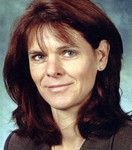 Dagmar Freist is professor of early modern history at Oldenburg University since 2004. She did her PhD at Cambridge University and she was a research fellow at the German Historical Institute, London. Her research focuses on political culture and the public sphere in 17th and 18th c. England and Germany, religious diversity in early modern England and Germany, diasporas, networks, economic and social interaction and cultural transfer in early modern northern Europe. She is co-founder of NESICT (www.nesict.eu) and she is co-speaker of the DFG graduate school “Self-Building. Practices of subjectivation in historical and interdisciplinary perspective (www.praktiken-der-subjektivierung.de . At present she is engaged in a project on a global microhistory (www.prizepapers.de)
Dagmar Freist is professor of early modern history at Oldenburg University since 2004. She did her PhD at Cambridge University and she was a research fellow at the German Historical Institute, London. Her research focuses on political culture and the public sphere in 17th and 18th c. England and Germany, religious diversity in early modern England and Germany, diasporas, networks, economic and social interaction and cultural transfer in early modern northern Europe. She is co-founder of NESICT (www.nesict.eu) and she is co-speaker of the DFG graduate school “Self-Building. Practices of subjectivation in historical and interdisciplinary perspective (www.praktiken-der-subjektivierung.de . At present she is engaged in a project on a global microhistory (www.prizepapers.de)
 James L. Gelvin is Professor of Modern Middle Eastern History at the University of California, Los Angeles. He received his B.A. from Columbia University, his Master’s in International Affairs from the School of International and Public Affairs at Columbia University, and his Ph.D. from Harvard University. He has taught at Boston College, Harvard University, MIT, and the American University in Beirut. A specialist in the modern social and cultural history of the Arab East, he is author of four books: The Arab Uprisings: What Everyone Needs to Know (Oxford University Press, 2012, 2015); The Modern Middle East: A History (Oxford University Press, 2004, 2007, 2011, 2015); The Israel-Palestine Conflict: One Hundred Years of War (Cambridge University Press, 2005, 2007, 2014); and Divided Loyalties: Nationalism and Mass Politics in Syria at the Close of Empire (University of California Press, 1998), along with numerous articles and chapters in edited volumes. He is also co-editor of Global Muslims in the Age of Steam and Print, 1850-1930 (University of California Press, 2013).
James L. Gelvin is Professor of Modern Middle Eastern History at the University of California, Los Angeles. He received his B.A. from Columbia University, his Master’s in International Affairs from the School of International and Public Affairs at Columbia University, and his Ph.D. from Harvard University. He has taught at Boston College, Harvard University, MIT, and the American University in Beirut. A specialist in the modern social and cultural history of the Arab East, he is author of four books: The Arab Uprisings: What Everyone Needs to Know (Oxford University Press, 2012, 2015); The Modern Middle East: A History (Oxford University Press, 2004, 2007, 2011, 2015); The Israel-Palestine Conflict: One Hundred Years of War (Cambridge University Press, 2005, 2007, 2014); and Divided Loyalties: Nationalism and Mass Politics in Syria at the Close of Empire (University of California Press, 1998), along with numerous articles and chapters in edited volumes. He is also co-editor of Global Muslims in the Age of Steam and Print, 1850-1930 (University of California Press, 2013).
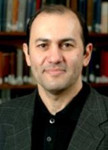 Hossein Kamaly, Assistant Professor in the Asian and Middle Eastern Cultures Department at Barnard, specializes in Middle Eastern history and Islamic Studies. After years of working as an electrical engineer, computer programmer, mathematical analyst, and simultaneous interpreter, he obtained a Ph.D. in history from Columbia University in 2004. His research interests focus on intellectual history, and the broad field of Perso-Islamic studies. He is committed to close reading of classical texts, and teaches courses in which important themes are traced across texts and societies.
Hossein Kamaly, Assistant Professor in the Asian and Middle Eastern Cultures Department at Barnard, specializes in Middle Eastern history and Islamic Studies. After years of working as an electrical engineer, computer programmer, mathematical analyst, and simultaneous interpreter, he obtained a Ph.D. in history from Columbia University in 2004. His research interests focus on intellectual history, and the broad field of Perso-Islamic studies. He is committed to close reading of classical texts, and teaches courses in which important themes are traced across texts and societies.
 Hans Kippenberg holds a wisdom-professorship of comparative religious studies at the School of Humanities and Social Sciences at Jacobs University Bremen. His research interests include the history and sociology of European paganism, Judaism, Christianity, Gnosticism, Islam in the Near East and Europe, Max Weber’s sociology of religion, the public status of religious communities in European history and contemporary religious violence. Kippenberg has held teaching and research positions at various international institutions, such as Israel’s Bar-Ilan University in Ramat Gan, the University of Chicago, the Institute for Advanced Study, Princeton, the Wissenschaftskolleg Berlin and the University of Groningen. He served as first and second chairman of the German Association for the Study of Religions from 1993-97 and 1997-2001.
Hans Kippenberg holds a wisdom-professorship of comparative religious studies at the School of Humanities and Social Sciences at Jacobs University Bremen. His research interests include the history and sociology of European paganism, Judaism, Christianity, Gnosticism, Islam in the Near East and Europe, Max Weber’s sociology of religion, the public status of religious communities in European history and contemporary religious violence. Kippenberg has held teaching and research positions at various international institutions, such as Israel’s Bar-Ilan University in Ramat Gan, the University of Chicago, the Institute for Advanced Study, Princeton, the Wissenschaftskolleg Berlin and the University of Groningen. He served as first and second chairman of the German Association for the Study of Religions from 1993-97 and 1997-2001.
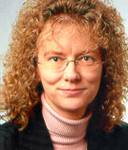 Ute Lotz-Heumann holds the Heiko A. Oberman Chair of Late Medieval and Reformation History at the University of Arizona. Dr. Lotz-Heumann’s scholarship has been devoted to early modern Irish, British and German history. She specializes in the history of Europe from the fifteenth to the early nineteenth centuries. The religious, social and political face of Europe changed dramatically during these centuries, making this a very dynamic period in history. The Reformation, colonization and the enlightenment were movements originating in Europe that shape the world until this day – for better or for worse.
Ute Lotz-Heumann holds the Heiko A. Oberman Chair of Late Medieval and Reformation History at the University of Arizona. Dr. Lotz-Heumann’s scholarship has been devoted to early modern Irish, British and German history. She specializes in the history of Europe from the fifteenth to the early nineteenth centuries. The religious, social and political face of Europe changed dramatically during these centuries, making this a very dynamic period in history. The Reformation, colonization and the enlightenment were movements originating in Europe that shape the world until this day – for better or for worse.
Keith Luria is a professor in the History Department at North Carolina State University, studying early-modern France and Europe, especially its cultural, religious, gender, and social history. He has examined these issues in two books, Territories of Grace: Cultural Change in the Seventeenth-Century Diocese of Grenoble (1991) and Sacred Boundaries: Religious Coexistence and Conflict in Early Modern France (2005). He has also written on topics such as the history of popular culture, religious conversion, and Catholic missions. He is currently interested in the history of religious coexistence, missions in and beyond Europe during the early-modern period, the meanings of religious conversion, and the European encounter with non-European religions during the seventeenth and eighteenth centuries.
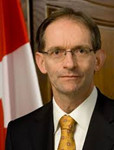 John McNee is the inaugural Secretary General for the Global Centre for Pluralism. As a senior Canadian diplomat, he served as ambassador to Syria, Lebanon, Belgium and Luxembourg and held executive positions at the Department of Foreign Affairs and International Trade, including Assistant Deputy Minister for Africa and the Middle East. From 2006 to 2011, he was Canada’s Permanent Representative to the United Nations in New York.
John McNee is the inaugural Secretary General for the Global Centre for Pluralism. As a senior Canadian diplomat, he served as ambassador to Syria, Lebanon, Belgium and Luxembourg and held executive positions at the Department of Foreign Affairs and International Trade, including Assistant Deputy Minister for Africa and the Middle East. From 2006 to 2011, he was Canada’s Permanent Representative to the United Nations in New York.
 Alberto Melloni is a church historian known especially for his work on the Second Vatican Council. He is Professor of History of Christianity at the University of Modena and Reggio Emilia, holder of the Unesco Chair for Religious Pluralism and Peace, and Director of the Foundazione per le Scienze Reliose Giovanni XXIII for Relgiious Studies in Bologna. He is also a columnist for Il Corriere della Sera and provides commentary for RAI TV. His extensive publication record includes books (author and editor), essays, reviews, and newspaper columns on topics such as: the Second Vatican Council, religious reform, John XXIII and the Ecumenical Councils.
Alberto Melloni is a church historian known especially for his work on the Second Vatican Council. He is Professor of History of Christianity at the University of Modena and Reggio Emilia, holder of the Unesco Chair for Religious Pluralism and Peace, and Director of the Foundazione per le Scienze Reliose Giovanni XXIII for Relgiious Studies in Bologna. He is also a columnist for Il Corriere della Sera and provides commentary for RAI TV. His extensive publication record includes books (author and editor), essays, reviews, and newspaper columns on topics such as: the Second Vatican Council, religious reform, John XXIII and the Ecumenical Councils.
Dipali Mukhopadhyay is Assistant Professor in Columbia University’s School of International and Public Affairs. She is currently finishing a forthcoming book manuscript with Cambridge University Press entitled Warlords: Strongman Governors and State Building in Afghanistan. She has worked in consultation with the US Department of Defense, the Canadian government, the US military, and the World Bank.
 Dan Nexon is a professor at Georgetown University. He has previously held fellowships at Stanford University’s Center for International Security and Cooperation and at the Ohio State University’s Mershon Center for International Studies. During 2009-2010 he worked in the U.S. Department of Defense as a Council on Foreign Relations International Affairs Fellow. Professor Nexon specializes in the comparative-historical analysis of international politics, international-relations theory, and international security. His current research focuses on statecraft and instruments of power politics, particularly in the context of unequal inter-state relations. He is the current lead editor of International Studies Quarterly. He is the author of The Struggle for Power in Early Modern Europe: Religious Conflict, Dynastic Empires, and International Change (Princeton University Press, 2009), which won the International Security Studies Section (ISSS) Best Book Award for 2010. He is also, entirely by default, one of the world’s leading authorities on the nexus between Harry Potter and International Relations.
Dan Nexon is a professor at Georgetown University. He has previously held fellowships at Stanford University’s Center for International Security and Cooperation and at the Ohio State University’s Mershon Center for International Studies. During 2009-2010 he worked in the U.S. Department of Defense as a Council on Foreign Relations International Affairs Fellow. Professor Nexon specializes in the comparative-historical analysis of international politics, international-relations theory, and international security. His current research focuses on statecraft and instruments of power politics, particularly in the context of unequal inter-state relations. He is the current lead editor of International Studies Quarterly. He is the author of The Struggle for Power in Early Modern Europe: Religious Conflict, Dynastic Empires, and International Change (Princeton University Press, 2009), which won the International Security Studies Section (ISSS) Best Book Award for 2010. He is also, entirely by default, one of the world’s leading authorities on the nexus between Harry Potter and International Relations.
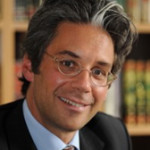 Chase F. Robinson is President of the Graduate Center of the City University of New York, the doctorate-granting institution of the nation’s largest university. Dr. Robinson, a historian of the premodern Middle East, is also Distinguished Professor of History. From 2008 through June 2013, he served as Provost and Senior Vice President of the Graduate Center. As Chairman of the Faculty Board of Oriental Studies at Oxford, Robinson put in place the department’s first academic plan, broadened its scope in terms of development and external relations, and forged new relationships with international donors as well as academic institutions in the Middle East. A specialist in early Islamic history, Robinson is the author or editor of seven books and more than forty articles. He also serves on a number of editorial and review boards, and his commentaries have appeared in Inside Higher Education, the Huffington Post, the (London) Times Higher Education Supplement, and Radio 5 in the UK.
Chase F. Robinson is President of the Graduate Center of the City University of New York, the doctorate-granting institution of the nation’s largest university. Dr. Robinson, a historian of the premodern Middle East, is also Distinguished Professor of History. From 2008 through June 2013, he served as Provost and Senior Vice President of the Graduate Center. As Chairman of the Faculty Board of Oriental Studies at Oxford, Robinson put in place the department’s first academic plan, broadened its scope in terms of development and external relations, and forged new relationships with international donors as well as academic institutions in the Middle East. A specialist in early Islamic history, Robinson is the author or editor of seven books and more than forty articles. He also serves on a number of editorial and review boards, and his commentaries have appeared in Inside Higher Education, the Huffington Post, the (London) Times Higher Education Supplement, and Radio 5 in the UK.
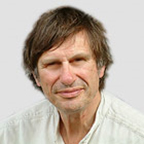 Malise Ruthven is the author of Islam: A Very Short Introduction, Islam in the World: The Divine Supermarket (a study of Christian fundamentalism), A Fury for God: The Islamist Attack on America, A Satanic Affair: Salman Rushdie and the Wrath of Islam, and several other books. His latest book is Encounters with Islam: On Religion, Politics and Modernity.
Malise Ruthven is the author of Islam: A Very Short Introduction, Islam in the World: The Divine Supermarket (a study of Christian fundamentalism), A Fury for God: The Islamist Attack on America, A Satanic Affair: Salman Rushdie and the Wrath of Islam, and several other books. His latest book is Encounters with Islam: On Religion, Politics and Modernity.
 Philip Soergel is the chair of the History Department at the University of Maryland. From 1989 until 2005 he was a member of the Department of History at Arizona State University in Tempe. He is the author of Wondrous in His Saints: Counter-Reformation Propaganda in Bavaria (California, 1993) and Miracles and the Protestant Imagination (Oxford, 2012). In addition, he has edited two collections of essays in the series Studies in Medieval and Renaissance History, written two reference books for the series Arts and Humanities through the Era (Thomson, 2004), and has published numerous essays and articles. Currently, he is a co-editor of the Pickering and Chatto series, Religious Cultures in the Early Modern World. He has received grants and fellowships from the National Endowment for the Humanities, the Friedrich Ebert Foundation, and the American Philosophical Society. From 1993 to 1995 he served as a member of the Institute for Advanced Study at Princeton. On several occasions he has served as a fellow at the Duke August Library, Wolfenbüttel, Germany and has twice been a visiting professor at the University of Bielefeld.
Philip Soergel is the chair of the History Department at the University of Maryland. From 1989 until 2005 he was a member of the Department of History at Arizona State University in Tempe. He is the author of Wondrous in His Saints: Counter-Reformation Propaganda in Bavaria (California, 1993) and Miracles and the Protestant Imagination (Oxford, 2012). In addition, he has edited two collections of essays in the series Studies in Medieval and Renaissance History, written two reference books for the series Arts and Humanities through the Era (Thomson, 2004), and has published numerous essays and articles. Currently, he is a co-editor of the Pickering and Chatto series, Religious Cultures in the Early Modern World. He has received grants and fellowships from the National Endowment for the Humanities, the Friedrich Ebert Foundation, and the American Philosophical Society. From 1993 to 1995 he served as a member of the Institute for Advanced Study at Princeton. On several occasions he has served as a fellow at the Duke August Library, Wolfenbüttel, Germany and has twice been a visiting professor at the University of Bielefeld.
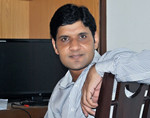 Rana Tanveer is a fellow at the Institute for Religion, Culture and Public Life and Institute for the Study of Human Rights at Columbia University. He works as a Senior Reporter with The Express Tribune daily (tribune.com.pk), a publishing partner of International New York Times. As a journalist, Rana is passionate about covering issues relating to religious minorities and human rights. He has become particularly interested in the Ahmadi religious minority and the discrimination this community faces. Writing about the activities of extremist religious organizations; issues related to terrorism among religious extremist organizations; and cases under review within the Pakistani court system are topics he covers as well. As head of a reporting team, Rana’s role at The Express Tribune also includes supervising the reporting team in Lahore to ensure coverage of all important issues of the day.
Rana Tanveer is a fellow at the Institute for Religion, Culture and Public Life and Institute for the Study of Human Rights at Columbia University. He works as a Senior Reporter with The Express Tribune daily (tribune.com.pk), a publishing partner of International New York Times. As a journalist, Rana is passionate about covering issues relating to religious minorities and human rights. He has become particularly interested in the Ahmadi religious minority and the discrimination this community faces. Writing about the activities of extremist religious organizations; issues related to terrorism among religious extremist organizations; and cases under review within the Pakistani court system are topics he covers as well. As head of a reporting team, Rana’s role at The Express Tribune also includes supervising the reporting team in Lahore to ensure coverage of all important issues of the day.
 Wayne Te Brake is Kempner Distinguished Professor of History at Purchase College, SUNY. He is the author of Shaping History: Ordinary People in European Politics, 1500-1700 (California, 1998), and Regents and Rebels: The Revolutionary World of an Eighteenth Century Dutch City (Blackwell, 1989) as well as a range of articles and book chapters on the comparative history of popular politics, religious contention, and revolution in early modern Europe. His research in the last decade has focused on the political history of religious contention and the long-term process of accommodating religious differences in Europe during the Reformation and the age of religious wars. The recipient of research grants from the Harry Frank Guggenheim Foundation and the Ford Foundation, Professor Te Brake is currently completing a book (forthcoming with Cambridge University Press) on Europe’s religious wars and their settlements.
Wayne Te Brake is Kempner Distinguished Professor of History at Purchase College, SUNY. He is the author of Shaping History: Ordinary People in European Politics, 1500-1700 (California, 1998), and Regents and Rebels: The Revolutionary World of an Eighteenth Century Dutch City (Blackwell, 1989) as well as a range of articles and book chapters on the comparative history of popular politics, religious contention, and revolution in early modern Europe. His research in the last decade has focused on the political history of religious contention and the long-term process of accommodating religious differences in Europe during the Reformation and the age of religious wars. The recipient of research grants from the Harry Frank Guggenheim Foundation and the Ford Foundation, Professor Te Brake is currently completing a book (forthcoming with Cambridge University Press) on Europe’s religious wars and their settlements.
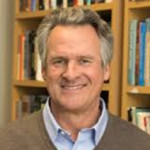 John Torpey is Professor of Sociology at the Graduate Center. He is the author or editor of several books, including Making Whole What has Been Smashed: On Reparations Politics (2006); Old Europe, New Europe, Core Europe: Transatlantic Relations after the Iraq War (edited with Daniel Levy and Max Pensky; 2005); Politics and the Past: On Repairing Historical Injustices (ed.; 2003); Documenting Individual Identity: The Development of State Practices in the Modern World (co-edited with Jane Caplan; 2001), The Invention of the Passport: Surveillance, Citizenship, and the State, (2000); and Intellectuals, Socialism, and Dissent: The East German Opposition and its Legacy (1995). His interests lie broadly in the area of comparative historical sociology and his current research focuses on the problem of “American exceptionalism.”
John Torpey is Professor of Sociology at the Graduate Center. He is the author or editor of several books, including Making Whole What has Been Smashed: On Reparations Politics (2006); Old Europe, New Europe, Core Europe: Transatlantic Relations after the Iraq War (edited with Daniel Levy and Max Pensky; 2005); Politics and the Past: On Repairing Historical Injustices (ed.; 2003); Documenting Individual Identity: The Development of State Practices in the Modern World (co-edited with Jane Caplan; 2001), The Invention of the Passport: Surveillance, Citizenship, and the State, (2000); and Intellectuals, Socialism, and Dissent: The East German Opposition and its Legacy (1995). His interests lie broadly in the area of comparative historical sociology and his current research focuses on the problem of “American exceptionalism.”
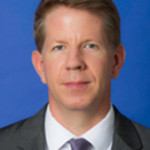 Frederic Wehrey is a senior associate in the Middle East Program at the Carnegie Endowment for International Peace. He focuses on Gulf political and security affairs, Libya, and U.S. policy in the Middle East. Prior to joining Carnegie, he was a senior policy analyst at the RAND Corporation, where he was the lead author of monographs on the domestic roles of Iran’s Revolutionary Guards, Saudi-Iranian rivalry, and the strategic impact of the Iraq War in the Middle East. In 2008, he led a RAND strategic advisory team to Baghdad, focusing on post-surge challenges in support of Multinational Forces–Iraq. Wehrey is also a lieutenant colonel in the U.S. Air Force Reserve and has completed tours in Turkey, Uganda, Libya, Algeria, and Iraq, where he earned the Bronze Star in 2003. He is the author of a new book exploring Sunni-Shi’a identity politics in Bahrain, Saudi Arabia, and Kuwait, entitled Sectarian Politics in the Gulf: From the Iraq War to the Arab Uprising (2013), named one of 2013’s top five books on the Middle East by Foreign Policy magazine.
Frederic Wehrey is a senior associate in the Middle East Program at the Carnegie Endowment for International Peace. He focuses on Gulf political and security affairs, Libya, and U.S. policy in the Middle East. Prior to joining Carnegie, he was a senior policy analyst at the RAND Corporation, where he was the lead author of monographs on the domestic roles of Iran’s Revolutionary Guards, Saudi-Iranian rivalry, and the strategic impact of the Iraq War in the Middle East. In 2008, he led a RAND strategic advisory team to Baghdad, focusing on post-surge challenges in support of Multinational Forces–Iraq. Wehrey is also a lieutenant colonel in the U.S. Air Force Reserve and has completed tours in Turkey, Uganda, Libya, Algeria, and Iraq, where he earned the Bronze Star in 2003. He is the author of a new book exploring Sunni-Shi’a identity politics in Bahrain, Saudi Arabia, and Kuwait, entitled Sectarian Politics in the Gulf: From the Iraq War to the Arab Uprising (2013), named one of 2013’s top five books on the Middle East by Foreign Policy magazine.
Lydia Wilson, Postdoctoral Fellow at the Committee for the Study of Religion at the Graduate Center, CUNY, is also a Fellow at ARTIS Center for Conflict Resolution; a Research Affiliate in History and Philosophy of Science, University of Cambridge; and the editor of the Cambridge Literary Review. She reviews regularly for the Times Literary Supplement.
